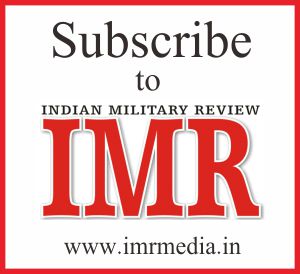Sometime towards the end of last year, the Oxford English Dictionary announced its word of the year for 2022: “permacrisis”. Defined by English writer David Shariatmadari as “a term that perfectly embodies the dizzying sense of lurching from one unprecedented event to another, as we wonder bleakly what new horrors might be around the corner”, this new word encapsulates the sense of pessimism that permeates so much of social and political life in the West today- one of its most evident causes being the Russo-Ukrainian War which began on 24th February 2022. It is this war whose military lessons and geostrategic implications Major General (Dr) GD Bakshi, SM, VSM (Retd), analyses in his latest book, “The Russia-Ukraine War: Lessons Learnt”.
Given the relative recentness of the conflict and the dearth of existing academic literature on it, the book constitutes a valuable scholarly contribution to an area of research that still remains relatively void. Eschewing neat but often flawed paradigms and analogies, Maj-Gen Bakshi posits a new model providing for a more holistic analysis of the current war: that of the Russo-Ukrainian war reflecting a hybrid between the traditional Clausewitzian approach based upon mass, and newer attitudes towards strategy stressing high-tech manoeuvrability and battlespace transparency. Indeed, the book points towards the juxtaposition between Russia’s historic emphasis on its use of large manpower and ‘human waves’ and the almost postmodern nature of the so-called Gerasimov Doctrine (named after Valery Gerasimov, Russia’s Chief of General Staff and current commander of its forces in Ukraine) stressing hybrid warfare and the blurring of lines between the civil and strategic elements of conflict, as an example of the cognitive discrepancy which shapes Moscow’s wider approach to the conflict. It is in this regard that even while accounting for the technologically-driven, network-centric elements of the war, Maj Gen Bakshi underscores that the military tactics being pursued by its belligerents continue to reflect the facets of military strategy as it has been pursued in Europe over the past century- including trench warfare, the continued relevance of the tank in modern warfare, and reliance on mass conscription. Using varied examples of key encounters and tactics employed, the book provides a balanced analysis of the war, highlighting the co-existence of both technologically driven warfare with its more traditional antecedents in the battlefields of Ukraine.
However, the consequences of war in the modern age have hardly ever been limited to the battlefield alone, and Maj Gen Bakshi, therefore, also provides a comprehensive overview of the economic and political implications and causes for the current conflict in the first place. Building upon wargames conducted by the IMR before and in the early stages of the war in 2022, the book provides a blow-by-blow analysis of the short, medium, and long-term outcomes of and factors driving the war. Maj-Gen Bakshi does not shy away in his analysis of the de-globalisation catalysed by the Russo-Ukrainian war. Employing empirical evidence to point towards the weaponisation of the US dollar and decreased global trust in its use and providing a balanced analysis of the state of the Russian economy after the war, the book provides a long-term overview of the conflict’s impact on the current world order. It is in a similar vein that the book points towards the ultimate manifestation of the current hostility between Russia and the West – that of potential nuclear warfare. Amid the Russian army’s depleting manpower, continuous escalation by the West and the prolonged nature of the war, it is argued that the nuclear threat remains a constant Damocles sword hanging over policymakers in both Washington and in Moscow. Joining together these seemingly disparate elements of strategic policy, Maj Gen Bakshi paints a complete picture of the knock-on impacts on the Ukraine war for a variety of stakeholders in different sectors.
Where the book most visibly breaks new ground however is in its particular assessment of the Russo-Ukrainian war from an Indian perspective- the first full-scale academic study of its kind so far. The book looks at India as a geopolitical ‘swing state’, seeking to preserve its national interest while being wooed by both the US and Russia, while expanding upon the technical military lessons to be derived from the war. Indeed, through his deft comparison of the war in Ukraine with the 1971 Bangladesh War from a purely technical, military perspective, Maj Gen Bakshi provides a useful analogy for Indian policymakers to assess the strengths and weaknesses of Russian battlefield tactics and weaponry in relation to the Indian armed forces’ view of military strategy in 2023. Correspondingly, the multipolar world order of today- acknowledged to be a longstanding determinant of international politics- is argued to have allowed India to build upon the opportunities which have emerged amid the war in Ukraine, with Indian policymakers having successfully balanced its interests between Russia and the West while concurrently maintaining strategic pressure against China and Pakistan. India’s actions have argued to have helped maintain a reliable source of arms and energy from Russia, even while ensuring that it maintains wider support from the West as a frontline state against Xi Jinping’s irredentism. With China having emerged a systemic competitor to India’s projection of national power, the lessons derived from the Ukraine war – both diplomatic and military – remain critical for the Indian government in its quest to establish its strategic power in Asia and beyond.
In summary, Maj Gen Bakshi provides a well-rounded analysis of the causes, nature and strategic consequences of the war in Ukraine. While stressing the technical and military side of the conflict and the lessons to be derived from it, the book acknowledges the interconnected nature of military strategy with other elements of national power today. By framing the tactical and strategic lessons from the war within a wider geopolitical context, the book provides a comprehensive examination of its consequences for geopolitics, international economics and diplomacy. The text, with its balanced analysis of the strength, weaknesses and errors made on both sides, presents a well-developed analysis for scholars and practitioners of national security alike- both in India and worldwide.



















